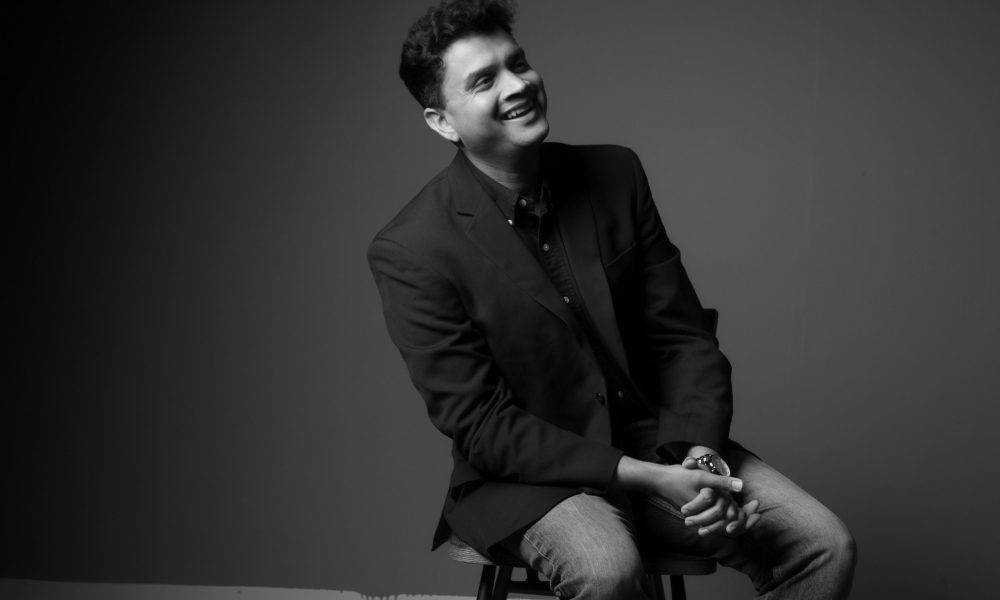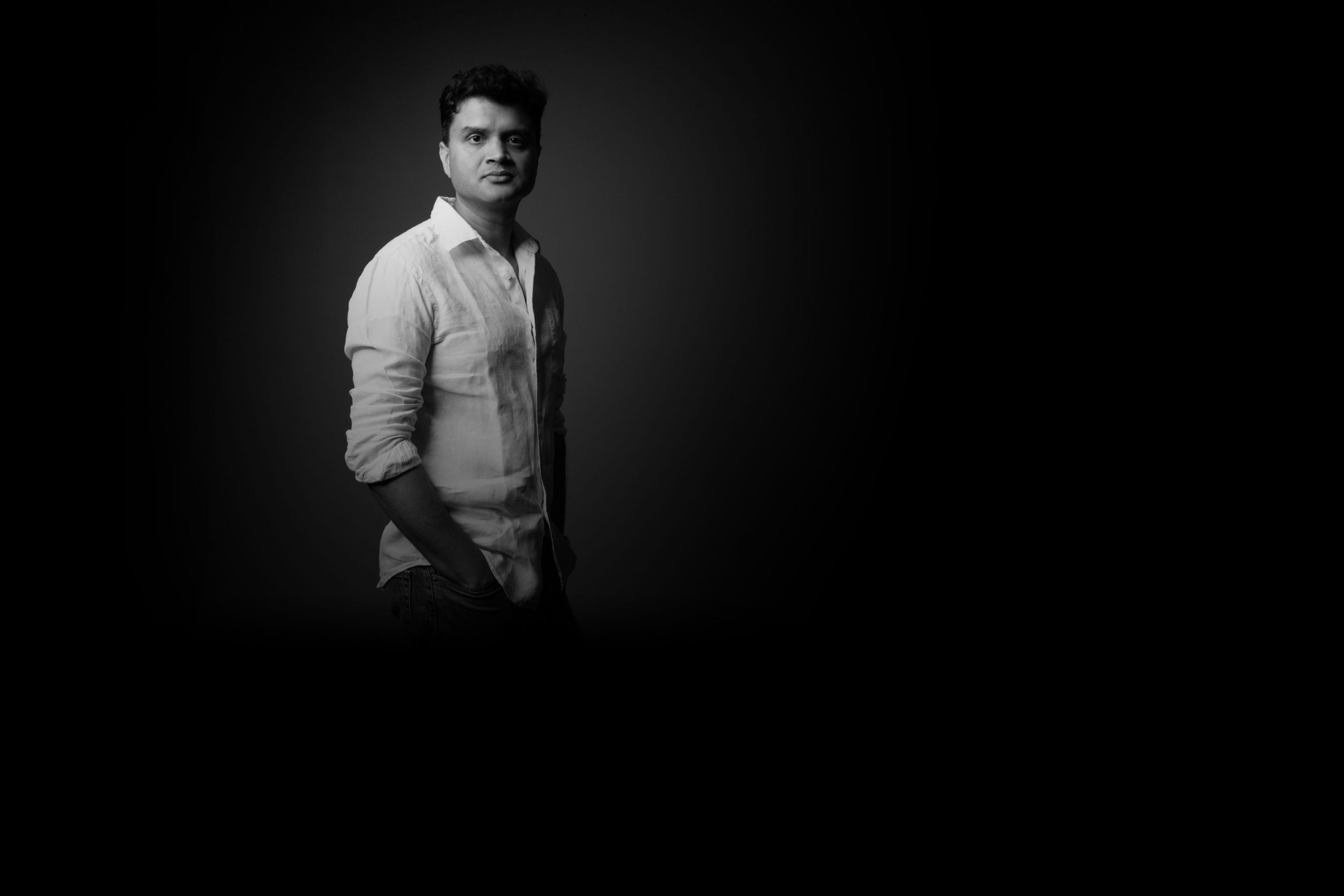

Today we’d like to introduce you to Ashay Javadekar.
Alright, so thank you so much for sharing your story and insight with our readers. To kick things off, can you tell us a bit about how you got started?
I grew up in a family of doctors. My mom and dad both practiced medicine. However, along with their medical practice, they were hugely interested in theater, performing arts, and technology. Both of my parents used computers for maintaining patient records and used visual softwares for creating artwork for theater and performing arts. Therefore, I have had a lot of familiarity with computers since my childhood. Whenever a new piece of technology got introduced in the market, my parents brought it home. I used 486 computers, multimedia machines, Lotus 123, Aldus Pagemaker, and Corel Draw very early on in my life. My dad also invested in stocks, and at that time, the stock market was completely on paper. So, he used to use a lot of mathematical software to speed up his investing workflows.
There was a magazine shop near my place. I used to go there and buy computer magazines. I was not interested much in the paper part of the magazine, but in the CD that used to ship with the magazine. That CD had trial versions for media software (like music and digital animation) that I could try. I had a music keyboard, so I used to connect it to our computer using a MIDI cable and record tracks in that software. Then, I used to mix them with the stock tracks to write jingles. I also used digital animation software to recreate title sequences of films I had seen. I had (and I still do) a huge fascination for movie projectors, and since my mom was an ophthalmologist, I used to borrow lenses from her clinic and build projectors out of shoe boxes at home. One of my distant uncles was a manager at a movie theater, so I made friends with the projectionist and spent some time in the 35mm projection room. I remember spooling Jurassic Park film on a 35 mm projector. Those were fun times!
I gravitated toward engineering after high school and went on to get my Ph.D. in Clean Energy from the University of Delaware. During my PhD, I did a lot of hands-on science experiments, and that knowledge came in handy later for making props for my creative projects. However, my PhD was not a great experience for me. I faced a lot of politics in academia and was very frustrated and depressed at times. I was desperately looking for some therapy, and films provided me that.
Around the same time, almost serendipitously, my school started a multimedia literacy program. As part of that program, all students had access to industry-standard editing and graphic design software and video and audio recording equipment, completely free of cost. They also started offering classes on how to use the equipment and software. It was like a wealth of knowledge in front of me, waiting for me to consume it. I joined a video editing class just for fun and was blown away by what you could do with digital video. I got sucked into filmmaking after that. I used to spend hours sitting in the library just editing videos, recording videos, recording sounds, and making something out of it. The library used to close at 2 am, and they literally had to drag me out of the library at that time. Another funny thing was all computers in the library used to get wiped out every single night for security purposes; therefore I had to save all my settings on a file and get that file on an external hard drive before computers were wiped every night. Then the next day I used to come back, and reinstall all settings, and then start work again.
Initially, I just made a 2 min short film with my friends and edited it on school computers. The film won first prize in a school-level competition and got accepted in some film festivals. That was an immense encouragement. Since then, I started making films regularly and eventually graduated to feature films. I now have 7-8 short films, two feature films, representation in major international film festivals like Cannes, and theatrical releases of my films. It has been a thrilling journey, and I am looking forward to more.
I’m sure it wasn’t obstacle-free, but would you say the journey has been fairly smooth so far?
It has not been a smooth road to say the least. Since I come from an engineering and technology background, I was extremely fascinated by the technology that is used to make films. For a couple of my first films, I only focused on that. But because of that, I did not pay much attention to writing screenplays and how to tell a good story. I shot my second short film on 16 mm film, and the camera had a feet counter. I had very limited film stock to shoot, so I created an automated process to calculate how much time was left for me to shoot on the stock. Even in the post, I added a lot of effects, grading, and matching digital footage with film footage by adding grain. However, I absolutely didn’t pay any attention to whether I was telling a good story or even if I was making it easy to understand for the audience. Therefore, that film failed miserably even though it was a technically perfect film. That taught me a very important lesson that technology should complement the story you are trying to tell, but it is always the story that takes the front seat.
Another challenge that I faced was when I took on bigger and bigger projects, I had an immense amount of work, but I didn’t have the luxury of hiring a lot of people to do the work. For example, for my feature film it had 200 scenes, 35 characters, 500 props, and even a simple thing as script breakdown was challenging. But the resource constraints forced me to use my engineering background to automate some of the filmmaking processes, which took a lot of overhead. I am planning to productize the technology that I have built for filmmaking.
People always ask me what is the greatest challenge you face while making films. I always answer that making people that are working with you to see the dream you are seeing for the final film is the greatest challenge. This becomes even more challenging when the people that are working with you are not from a filmmaking background. While making films on a shoestring budget, most times you have to pull in your friends, anyone who wants to help you, and they might not have made films before. It is important to understand what they are good at and train them to work in filmmaking with their existing skills. Keeping them motivated to work with you, sometimes without any compensation could pose challenges. But that is the only way you can start making films (or making anything worthwhile for that matter).
Can you tell our readers more about what you do and what you think sets you apart from others?
I am a filmmaker, podcaster, and food and technology entrepreneur.
I started my creative career with short films (all of them are available to view on my website, www.ashayjavadekar.com). I eventually graduated to feature films. One of my feature films is available to view on YouTube, and the other one is available via password protected link. I would love to share the link with anyone who would like to see it.
When I am not making films, I host a few podcasts. I host a podcast called CineGappa in my native language, Marathi, about analogies between filmmaking and engineering. Creative Tools is a podcast where I talk with various creators on what tools and technology they use to be creative. The third podcast is just a fun podcast about data science, where I talk about core data science concepts, including AI without the use of equations and math. All of my podcasts are available on my YouTube channel, youtube.com/ashayjavadekar.
I am also a food entreprenuer. I am immensely passionate about popularizing Marathi cuisine, the cuisine that belongs to the state of Maharashtra, where I grew up. I actually made a film about a Marathi chef that opened a Marathi fine dining restaurant in the US, and it became hugely successful in 2017. (This is the film that’s available on my YouTube channel) Although the film was completely fictional, many people thought it was real, and I still get emails from chefs around the world getting inspired by the film to open their own restaurants. I am now opening the same restaurant and making the film a reality. To know more, please sign up here. www.shanksmarathidining.com
I am most proud of the creative relationships I have made during my creative career. In all creative projects, eventually it comes down to the people that are making the product with you that you have dreamt of. Great people can take any idea and make it great. I intentionally try to maintain a company of people much smarter than me around me that I can learn from. I read a quote somewhere; I think it was Tarantino that said, “You should be the weakest link in your chain; that trains you to be stronger”. I get out of relationships that are not adding any creative value to my life as soon as possible.
I think one of the things that I bring to filmmaking is a strong technology perspective that I have developed over the course of my engineering career. Therefore, I see all creations from an engineering angle. For screenplay writing, I look at how I can engineer emotions. For podcasting, I work hard to automate mundane tasks so that I can focus on the content.
Alright, so to wrap up, is there anything else you’d like to share with us?
I love working at the intersection of technology and art. John Lassetor used to say, “Art challenges technology, technology inspires art” and I experience that on a daily basis with my adventures. I have used and molded technology to create and inspire the art I have created. For example, my entire podcasting portfolio and social media presence is completely automated. I don’t go on social media channels to manually post my content. I create content, and I have created software that takes my content and posts it automatically. I am very happy to share that I am starting a technology company laser-focused on empowering creators to be creative.
Productivity and creativity are two different things. Productivity is how fast, and creativity is how well. Creators do not necessarily care about doing things fast. They want to make a product that they are proud of. If you are asked to join two points in space, any productive mind will connect them with a straight line. You can write an equation for it, you can create a computer program for it, and the answer will not depend on who is connecting the points. It will always be a straight line. However, if you ask ten creators to connect the two points in space, you will get ten different answers, and every answer will be correct. Why? Because creators have their own voices. Therefore, if we create technology for creators, it should help creators develop and maintain their voices.
I am starting with completely rethinking from the ground up how films are made and creating a unified platform from ideation to publishing. I am looking for beta customers to try my product, so if you are a screenplay writer, storyboard artist, or film editor, please reach out. I have something that will blow your mind away. I am going to change how films are made forever.
I can be reached at ashayjavadekar@gmail.com. My creative work is at my websites below. Also, as I mentioned above, I am definitely looking for people to use my product to give me feedback, so please reach out.
Contact Info:
- Website: www.ashayjavadekar.com
- My podcasts: youtube.com/
ashayjavadekar - My food entrepreneurial venture: www.
shanksmarathidining.com















